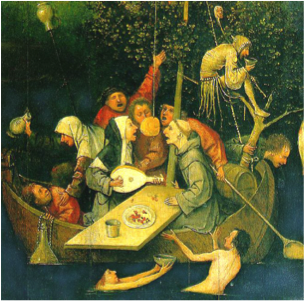
Decision-Making
Of Two Minds
Stories are the most direct route to changing minds and controlling behavior.
Posted July 11, 2017
When the door to the ward opened, the smell of desperation and despair immediately hit me. It was the first day of my summer job as a psychiatric aide on the acute schizophrenia ward of Northville State Hospital. I was 19.

I was studying to be a psychoanalyst and most of my coursework was in behavioral science, the reigning approach of the time. Trained to focus on behavior and disregard whatever might be going on in the mind, I was wholly unprepared for what I experienced.
One patient walked up and down the hallway repeating “red light, green” over and over. Another stood in the corner of the dayroom giving an impassioned speech to an unseen audience that apparently was not favorably disposed. A third was conversing with God who I later found out periodically commanded him to smite the sinners.
All of these men had a coherent, if delusional, story they told themselves, whether it was the need to ward off trouble with a repeated mantra about stoplights, to orate unpopular ideas, or to be an agent of retribution. No operant conditioning was going to change their behavior. They needed a new story.
Decades would go by before fMRI would provide us with hard data about how the mind worked, and we would learn that high-level neural networks such as a personal narrative would key the activation of lower level networks responsible for decision-making and behavior. Behavioral science had it upside down.
We now know that narratives are the way we process our experience, and as Michael Lewis notes in The Undoing Project, Amos Tversky (one of the founders of behavioral finance) saw the story as responsible for the heuristics that drove our often seemingly irrational behavior.
Last year during a visit with healthcare executives to a marquis Silicon Valley company, we were treated to a story about the founders and the culture. Despite having no specifics on the company’s offerings, we all wanted to do business with them. During a visit this year, we were tortured with a detailed hard sell of products and technology right after lunch. Those that remained awake, resented it and felt disinclined to ever buy what was being touted.
The story, as the way the mind naturally works and with its integration of thought and emotion driving decision-making, is the most direct route to changing minds. If the goal of human interaction is to get others to do what we want, stories are the most powerful way to lead, sell, and transform organizations.

